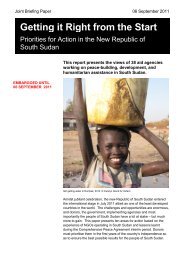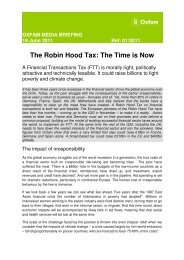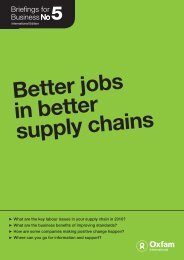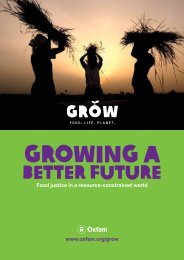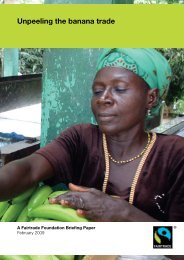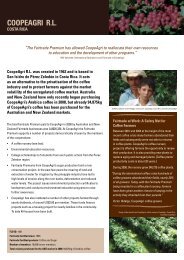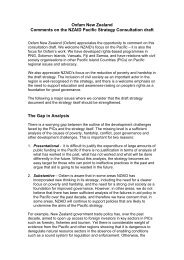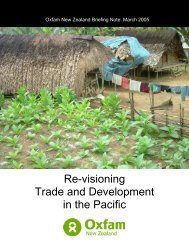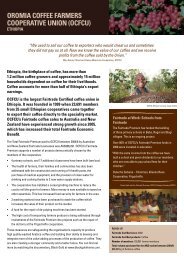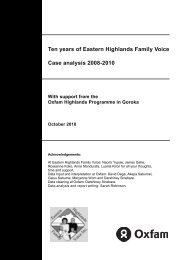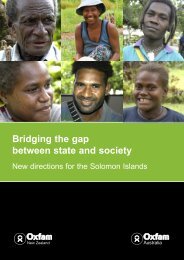Better returns for business.pdf - Oxfam New Zealand
Better returns for business.pdf - Oxfam New Zealand
Better returns for business.pdf - Oxfam New Zealand
- No tags were found...
Create successful ePaper yourself
Turn your PDF publications into a flip-book with our unique Google optimized e-Paper software.
FORTYAs a final reflection on the question of corporatereporting, we would note that reporting toinvestors is just one part of companies’ widerreporting to society, and that the proposalsmade here are not meant to preclude othersocial and environmental reporting directed atthe needs and interests of other stakeholders.For example, <strong>Oxfam</strong> and many otherorganizations are calling <strong>for</strong> transnationalcorporations to disclose their profits andthe taxes they pay on a country-by-countrybasis. 55 To support this, <strong>Oxfam</strong> calls <strong>for</strong> stockexchanges to incorporate country-by-countryreporting and ESG disclosure standards intoInitial Public Offering (IPO) and ongoing listingrules in the same way that financial reporting isa requirement <strong>for</strong> all companies. 56Developing norms and consensus aroundcompanies’ per<strong>for</strong>manceAs discussed in Section 4, investors aremore likely to take specific social issues intoaccount in their investment decisions andengagement when there is a clear consensusaround what the expectations of companiesare. Internationally agreed frameworks onissues such as labour standards, bribery andcorruption, cluster bombs and controversialweapons have enabled these issues to beintegrated into their investment analysis andhave provided a basis <strong>for</strong> engagement withcompanies. One of the central conclusionsfrom the BRBW project is that, if we areexpecting investors to play a meaningful rolein ef<strong>for</strong>ts to alleviate poverty, there is a need<strong>for</strong> clear normative frameworks that set outthe expectations of companies (and of theirinvestors) in relation to the issue(s) in question.A number of priority issues were identified in thecourse of the workshops:• Access to land, specifically the manner in whichissues such as food security, right to food,land tenure, water resources, smallholdersparticipation, communities benefits of theinvestment are addressed when investorspurchase land in developing countries.OXFAM AND MANY OTHER ORGANIZATIONSARE CALLING FOR TRANSNATIONALCORPORATIONS TO DISCLOSE THEIRPROFITS AND THE TAXES THEY PAY ON ACOUNTRY-BY-COUNTRY BASIS.We recommend that investors:• Encourage governments and key stakeholdersto start the process of developing appropriateframeworks (and improving legislation) in theseareas.• Actively participate and support thedevelopment of such normative frameworks.In the specific case of the defence sector, werecommend that investors lend their activesupport to the proposals <strong>for</strong> a comprehensiveand binding UN Arms Trade Treaty, 57 which arecurrently under debate.• Encourage companies to support crediblemulti-stakeholder (MSI) processes, such as theRoundtable on Palm Oil.• Monitor and evaluate companies’ per<strong>for</strong>manceagainst appropriate normative frameworks(including existing legislation and frameworks,e.g. the Right to Food), as an integral part oftheir engagement with companies.• Arms transfers (and corporate responsibilityexpectations of the defence sector in general)• The management of water in water-stressedand water constrained areas, covering issuessuch as access to water, human right to water,community engagement and long-term waterplanning.



